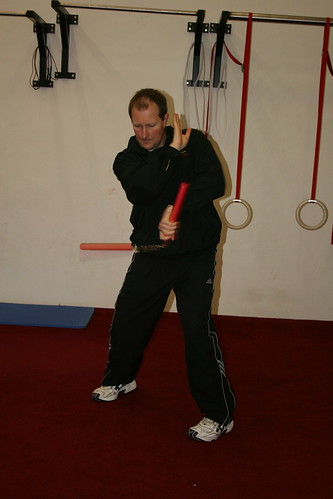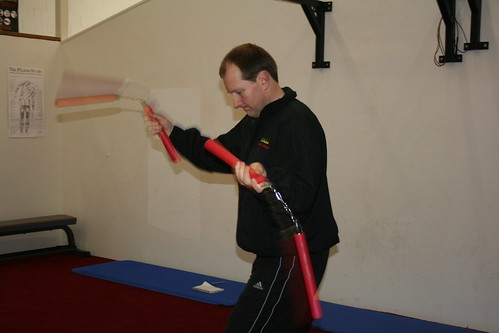I was really proud to be involved in Senator Lundy’s Foundations of Open Summit and wanted to follow up with some more resources. There are videos from all talks available, Donna just did a great blog post about it as did Brianna from Wikipedia.
It is important to recognise the initiative and interest of Senator Kate Lundy in openness, and I greatly thank her for her efforts in getting openness on the political agenda.
The submissions from the day (which all participants were open to contribute) are also online which all contribute to the 2020 Summit discussions are awesome. Some tidbits:
The rise of the use of FOSS in the IT industry is without doubt a revolutionary force that will have a huge impact on the way that society interacts with computers into the future. The question that I would like addressed by the Australia 2020 summit is what can be done to ensure that Australia can benefit to the maximum degree possible from this change in the IT world.
Andrew Tridgell – Freedom Fighter 🙂
It is widely acknowledged that open access to Crown copyright material is important not only as an element of open democracy, but is “a key driver of social, cultural and economic developmentâ€. With the emergence of digital technologies that enable dissemination of government material at low cost, copyright law is now the last significant barrier to truly open government.
Jessica Coates – Creative Commons
Establish a national mechanism for discoverability of spatial data. Discoverability is necessary to effectively deliver spatial data when and where it is needed, especially in emergencies but increasingly for general use, and would unlock enormous opportunities for innovation and creativity with the use of these data.
David Hocking, CEO ASIBA
Australia’s infrastructure will face even more difficult challenges unless we take advantage of IPv6, particularly for water and energy. For instance, critical energy and resource conservation measures will require large increases in the scope of control systems. There is an urgent need for greater national IP capability to use in reducing our global footprint in this way, but the capacity of our
current IP system is nearly exhausted.
Tony Hill – Internet Society of Australia
Amend the Broadcast Act to clearly define the fair use of broadcast material nationally for all educational institutions. Amend the role of Screen Rights to measure/clear international sources.
Clarify that educational organisations have clearance to use any free- to-air live broadcast services and to share them nationally within the academic realm for purposes of study, archive and analysis. As part of their participation in Australian society, any broadcaster supplying free-to-air (unencrypted) services anywhere within our shores would be bound to allow national open access to their material for educational use.
George Bray
Physical Infra-structure and facilities be made available for the schools sector to improve network speeds and bandwidth traffic loads.
Kevin Karp, StudentNet
Open information and knowledge – allow information produced by the public sector to be easily accessible and freely available to citizens and businesses for reuse, including commercialisation with appropriate exceptions such as law enforcement, security and privacy. Placing government produced IP in the public domain, such as maps and data, can unlock public and private value – U.S. property appraisal data makes www.zillow.com a more innovative service for home buyers than www.suburbview.com
Patrick McCormick, The Nous Group
Open Source is no longer an emerging technology. It is here now. OSIA[2] believes it’s in Australia’s best interest to not only adopt Open Source software, but actively contribute to the Open Source economy of ideas and innovation. Each of the 10 areas of focus for the 2020 Summit depend on the new reality of a global interconnected information economy. Google and Wikipedia were built with Open Source Software because it was the only way it could be done. Open Source Software enables us to compete, connect and communicate.
Donna Benjamin – Director – Open Source Industry Australia
If the potentially major transformative benefits to be derived from “Open†both from the technological and digital knowledge perspectives are to be fully realised then it is essential to establish or identify internationally credible standards and specifications etc. which support the desired outcomes. The real value and potential of PSI is realised only through its extensive re-use. Open will overcome the present major impediments which prevent this full potential from being realised.
Neale Hooper – Principal Lawyer, Whole of Government Licensing Project, Office of Economic and Statistical Research, Queensland Treasury
The availability of high speed broadband across Australia has the potential to reduce many problems of resourcing and access to information faced in Australia due to our dispersed population. Students and researchers in remote areas could be provided with equal access to quality resources and texts that students in metropolitan centres have. If every student has access to a computer and high speed broadband, then all students, regardless of socioeconomic status, can have access to knowledge.
However, the ADA is concerned that overly complex and restrictive provisions in the Copyright Act 1968 continue to impede this potential. […] In short, the ADA sees great potential in the digital education revolution, however, without significant copyright reform the ADA believes that students will have access to high speed broadband, but will not have the access to knowledge that should flow from this.
Laura Simes, Australian Digital Alliance
Laura Simes, Australian Digital Alliance
We have The Internet technology and we have the need. Many more activities need to be open and accessible, so that together we might advance the world instead of letting it slide into catastrophe.
Nick Sharp
Openness as a default position for ICT innovation and development provides many clear opportunities and advantages. Clear leadership and assistance is necessary from the Australian Government so individuals and organisations from all sectors can make informed decisions how openness can benefit them.
Me 🙂
Another news article about the event was in the Canberra Times, which had Jeff and I as the photo. Unexpected and a little odd 🙂










